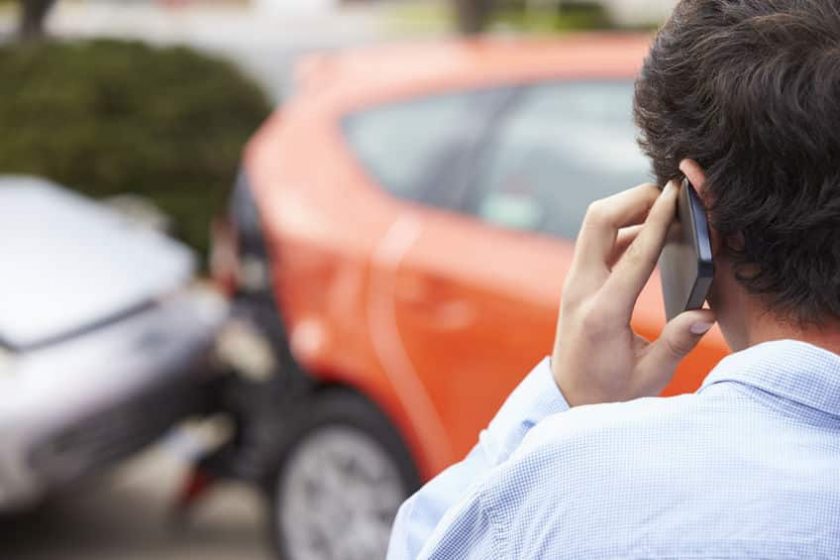You may be excelling at teaching your teen driver how to prevent a motor vehicle accident. But did you know that preparing them for what to do after a collision occurs is equally important?
According to the Center for Disease Control and Prevention (C.D.C.), at least 1 in 4 teens will become involved in a motor vehicle accident during the first year of driving. Teens are also three times more likely to become involved in a car accident than drivers in other age groups due to general inexperience on the road.
Your teen’s increased risk for accidents makes educating them on the post-collision process even more essential. Insurance companies can and will deny claims that are missing information. Here’s what your family needs to know to avoid a big headache when it comes to submitting an accident claim.
What To Do After An Accident
Preparing an adult for what to do after an accident is more straightforward than preparing a teen. Teen drivers have little experience with the rules of the road or collecting evidence to file insurance claims. Ensuring you review each step carefully is critical to your claim’s success and reducing your teen’s stress level, especially when serious injuries are involved.
Stay Calm
Car accidents can be stressful and scary for everyone. The thought of getting into trouble or hurting others can provoke high anxiety. But becoming panicked or defensive towards others involved in the accident can unnecessarily escalate the situation.
Teach your teen to stay calm and relaxed after an accident occurs. Car accidents happen every day. Sticking to the following steps of what to do after an accident can reduce stress and confusion. Review the steps often and keep a copy of the step list accessible in the vehicle to use if an accident does occur.
Stay Safe
Safety is always a priority over vehicle damages. Remind your teens that cars can be replaced, but ensuring they are safe and healthy is the first focus after an accident.
Teach your teen to call 911 when injuries are sustained in an accident. If they cannot call but can speak up for themselves, encourage them to seek help from others. For any situation in which your teen loses conciseness in an accident, equipping them with an emergency medical card with pertinent information about allergies or other medical conditions can help medical personnel to provide care.
Report The Accident
New York law requires all drivers to file a police report when a car accident occurs, regardless of how minimal. Police officers can be intimidating to teen drivers who fear getting in trouble or losing their license. Encourage your teens to think of officers as individuals who are there to help, not to blame.
Police officers who make accident reports are providing the information that your insurance company needs to cover damages in an accident properly. If your teen is nervous talking to police, try to role-play what they can say and what information is the most important to provide.
Exchange Information
Exchanging information after an accident can be one of the most stressful, but necessary, steps to filing an insurance claim. Creating a reminder sheet with all the information drivers should be collecting and providing can be a great tool. This information includes:
- Name of driver;
- Address;
- Telephone number;
- Insurance policy; and
- Contact information.
If the other driver involved in the accident is not the owner, have your teen also ask for the vehicle owner’s information. If your teen encounters a driver who is not cooperating with the New York State protocol of what to do after a vehicle accident, make sure they provide as much information to police officers when they arrive.
Explain to your child how important it is not to apologize after an accident, regardless of fault. Anything and everything your child says after an accident can be used against them, including social media posts. Teach them to be helpful and empathetic without outright taking the blame for any damages that were caused.
Keep Personal Records
It’s entirely possible to remember specific details about an accident later on that you may not have remembered directly after an accident or vice versa. Provide your teens with a pad of paper and a pen to keep in the car to be able to take notes and keep records of the details after an accident, including:
- The police officer’s name;
- Witnesses present;
- Direct statements from witnesses;
- Details about the accident; or
- Citations and statements made by the other driver.
Take Photos
Thankfully, teens are pretty well versed in taking photos and most often carrying their smartphones. Remind your teen to take photos of the accident scene when it is safe. Do not move anything at the scene. You want to make sure the photos show every detail as it was directly after the accident occurred.
Details teens should be focusing on include:
- Damage to both vehicles;
- The entire scene for an overview;
- License plate numbers, and;
- Injuries sustained.
Find out more about how to properly photograph an accident scene here.
Call Home
A teen’s first reaction after an accident may be to call their parents. However, try to deter them from calling you immediately. Staying present and alert in the aftermath of an accident is important to keeping them safe and gathering the information needed for a future claim.
Adequately preparing your teen can negate the need to call you for advice the moment an accident occurs. When it is time to call, your teen should have handled the majority of what is needed to file an accident claim. This is the time to check in to see where they are and what information they still need to gather.
Call an Accident Attorney
When car accidents are caused by negligence that leads to injuries or significant property damage, insurance companies will only cover so much. Calling to consult with an experienced motor vehicle accident attorney can be essential to navigating the claims process. An accident attorney will provide you with the best chance of filing a successful claim and help determine the overall amount of damages you can claim as a result of the accident.
New York City and Long Island Accident Attorneys
Our personal injury attorneys at the law firm of Siler & Ingber, have over 20 years of experience serving clients across New York City and Long Island. We protect your rights by maximizing recovery and securing the financial support our clients need to succeed on their road to recovery. Our winning attorneys know how to navigate through the claim process using past experience as insurance defense attorneys. We are not afraid to fight and are fully prepared to take your case to trial to get a justified verdict over settling for less.
If you or a loved one has been injured in an accident due to the negligence of another, our team at Siler & Ingber is here to help. With a 98% success rate, we have the experience and the know-how to help our clients achieve a favorable outcome. Contact us today at 1-877-LAW-4343 or schedule an appointment online anytime. We never charge a fee unless we recover money for you.

The Impact Of Marijuana Legalization
Would New York legalizing recreational marijuana increase road accidents? We took a look at the stats in our latest study.
View StudyThe Law Office of Siler & Ingber, LLP
Phone:
1.516.294.2666
Address:
301 Mineola Blvd. Mineola, NY 11501
Subscribe to our Newsletter
SubscribeThis is a unique website which will require a more modern browser to work!
Please upgrade today!

